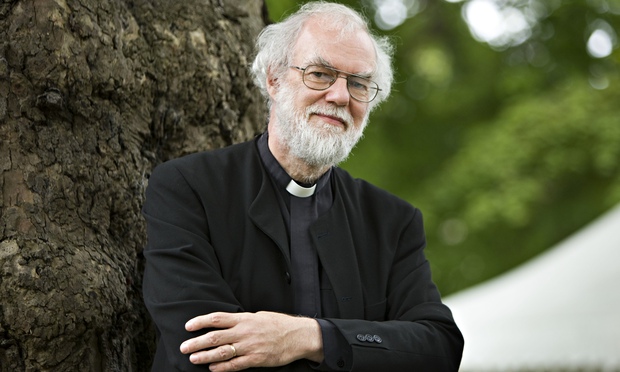In an interview recently published in Christianity Today, the former Archbishop of Canterbury and current Master of Magdalene College, Oxford, Rowan Williams, makes the case that theological education should be accessible to everyone.
Well, in the broadest possible sense, theological education is learning more about the world that faith creates, or the world that faith trains you to inhabit. That’s what I really want to come back to again and again when I talk about theology. It’s not about a set of issues or problems, it’s about a landscape you move into—the new creation, if you like. You inhabit this new set of relationships, this new set of perspectives. You see differently, you sense differently, you relate differently.
To do theology is, in some ways, to be taken back to that moment of bewilderment about the newness or the distinctiveness or the strangeness of being in this new Christian framework. So theological education is familiarizing yourself with how people have found their way around that landscape with the perspectives they’ve occupied and then learning to pitch your own tent, as one might say, in that territory.
… I see theological education as education not only about the nature of God but the nature of humanity. A good theological education will show you something of the kind of human being that you’re talking about when you’re talking theologically, which isn’t necessarily the kind of human being you’re talking about if you’re just talking sociologically, anthropologically, psychologically. You’re talking about a human being made in the divine image, tragically and catastrophically tangled and distorted by human history. And yet, in their entirety, seen and loved by God. So what you’re learning in pastoral contact with three-dimensional, complicated human beings like that is really relevant to your theology. You are learning what kind of human being God is interested in, which of course is every kind of human being.
… As for lay education, what I’ve seen of it working well is very often the kind of group where people feel they have permission to ask the real questions, where there’s a degree of real trust and mutuality, where people don’t feel obliged to come up with shortcuts but are able to take time.
And, again, you don’t stint on the intellectual questioning there. The priority is to get back again and again to that big picture. I go on obsessively about this sometimes. The big picture of the landscape, the new creation, is where we’re headed and where we’re from. The mistake is to think you can just break it down into manageable bits. A theologically-educated layperson is somebody whose capacity for praise and wonder is filled out, not just the capacity to answer pub questions.
The full interview, including Williams’ thoughts about the presence of colonialism in theology, is available here.

